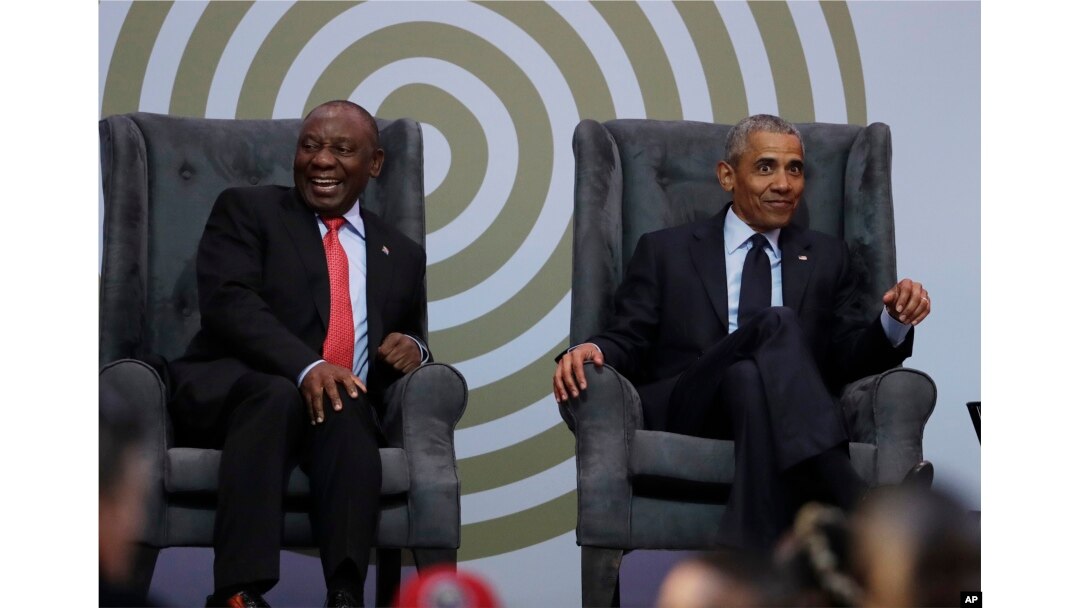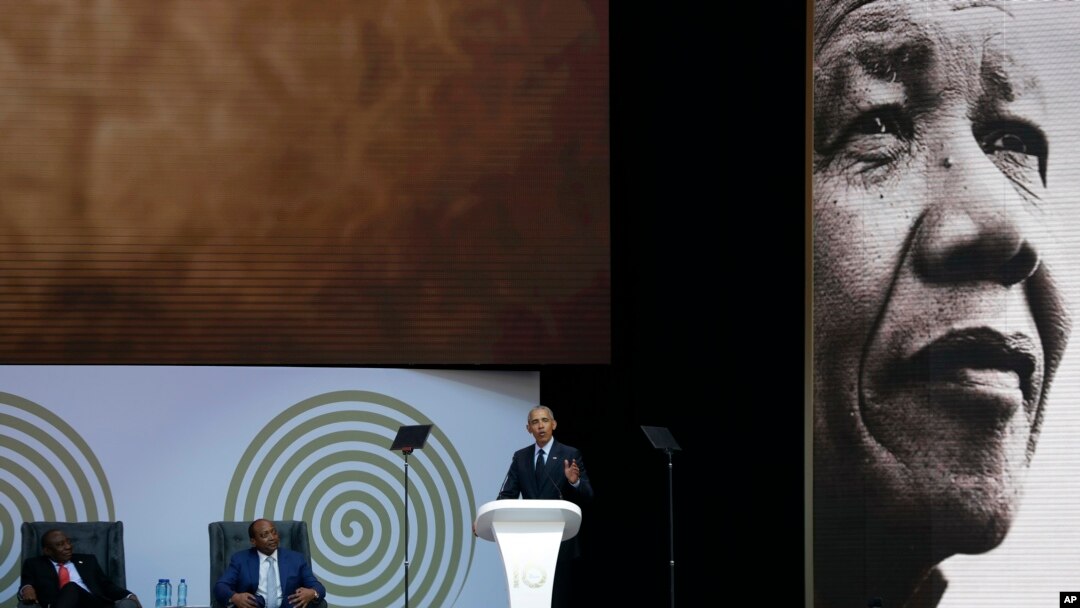Former U.S. President Barack Obama warns the "denial of facts" could spell the end of of democracies around the world.
Obama's remarks were made Tuesday in Johannesburg to commemorate the 100th anniversary of the birth of anti-apartheid icon Nelson Mandela. It was his highest-profile event since leaving the White House in 2017 after eight years in office.

South African President Cyril Ramaphosa (L), and former U.S. President Barack Obama (R) share a light moment at the16th Annual Nelson Mandela Lecture at the Wanderers Stadium in Johannesburg, South Africa, July 17, 2018.
"The denial of facts runs counter to democracy," he said. "It could be its undoing, which is why we have to zealously protect independent media. And we have to guard against the tendency for social media to become truly a platform for spectacle and outrage and disinformation."
The former president called on proponents of democracy to follow Mandela's "example of persistence and of hope" and insist that schools "teach critical thinking for young people, not just blind obedience."
Obama cited global warming as an example. Without mentioning U.S. President Donald Trump, who has in the past said climate change is not real, Obama said, "Without facts, there’s no basis for cooperation."
"I can’t find common ground if somebody says climate change is just not happening, when almost all the world’s scientists tell us it is," he said. "If you start saying it is an elaborate hoax, I don’t know ... Where do we start?"
Obama said today's politicians seem to "reject the very concepts of objective truth. People just make stuff up." He said "politicians have always lied," but today "we see the utter loss of shame among political leaders where they’re caught in a lie and they just double down and they lie some more."
The former president said believers in democracy "have no choice but to move forward." But he cautioned, "We’re going to have to work harder and we’re going to have to be smarter. We’re going to have to learn from the mistakes of the recent past."
"Democracy depends on strong institutions and it’s about minority rights and checks and balances and freedom of speech and freedom of expression and a free press and the right to protest and petition the government," the former president said.
He also rejected the "false promise" of a more efficient autocratic form of government. "Don’t take that one because its leads invariably to more consolidation of wealth and power at the top. And it makes it easier to conceal corruption and abuse."
"For all its imperfections," Obama added, real democracy best upholds the idea that government exists to serve the individual and not the other way around."
Members of the public sit beneath a banner of former President Nelson Mandela (R) where former U.S. President Barack Obama delivered his speech at the 16th Annual Nelson Mandela Lecture at the Wanderers Stadium in Johannesburg, South Africa, July 17, 2018
At least 14,000 South Africans gathered in a Johannesburg cricket stadium to hear Obama.
Obama encouraged South African youth to carry on Mandela's lifelong struggle for democracy, diversity and human rights during the 16th annual Nelson Mandela Lecture.
"Now is a time to be aroused. Now is the time to be fired up. We have an obligation to help our youth succeed," he said.
The speech was delivered on Obama's first visit to Africa since leaving office. Obama's long-time advisor Ben Rhodes said the speech was aimed at drawing attention to values that are under threat and to unite people in Africa and in other parts of the world to fight for justice and tolerance.
Mandela was imprisoned for 27 years under South Africa's harsh system of while minority rule before his release in 1990, and became the country's first black president four years later in the country's first multi-race elections.



